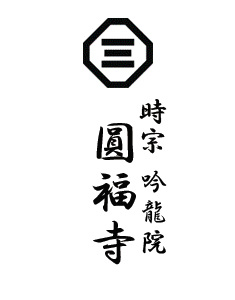About Ji-syu
Ji-syu (the sect of Time) is a branch of Japanese Buddism which places a high value to Nen-butsu (in Chinese Nianfo), the Buddhism invocation. It was founded by Ippen-Syonin about 700 years ago. The name was originated from Ji-syu (the People of Time). One of his mentor, Zendo-Daishi, who had preached Nen-butsu in China 7th century, called his disciples Ji-syu.
Why "time"? Zendo-Daishi divided a day into six, and told his disciples to do different services in each period. Gradually, not only Zendo's disciples but those who did such services got to be called "Ji-Syu". Of course, Ippen was among them.
As the time passed, the word "Ji-Syu" became used less and less. In spite of this, some groupes which followed the wake of Ippen continued to use the term, and in Tokukaga-era "Ji-syu", which meant "the sect of Time", was adopted as the name of themselves.
The Buddha who is professed in Ji-syu is Amida-Nyorai (in Sanskrit Amitabha), and the principal image is Namu Amidabutsu (in Sanskrit Namo Amitabhaya). Those who chant this Nen-butsu are believed to get unmesureable wisdom of Amida-Nyorai and eternal life.
The ideas of Ji-syu are founded on three sacred books. They are called "Jyodo-Sanbukyo (Jyodo means "pure land", and Sanbukyo means "Three sacred books").
Long line of principal priests of Ji-syu moved nationwide to preach Nen-Butsu. Such form of preaching is called "Yugyo"The Yugyo priests distribute tags written Nen-butsu. This deed is called "Fusan" and believed to be proof of Salvation.











